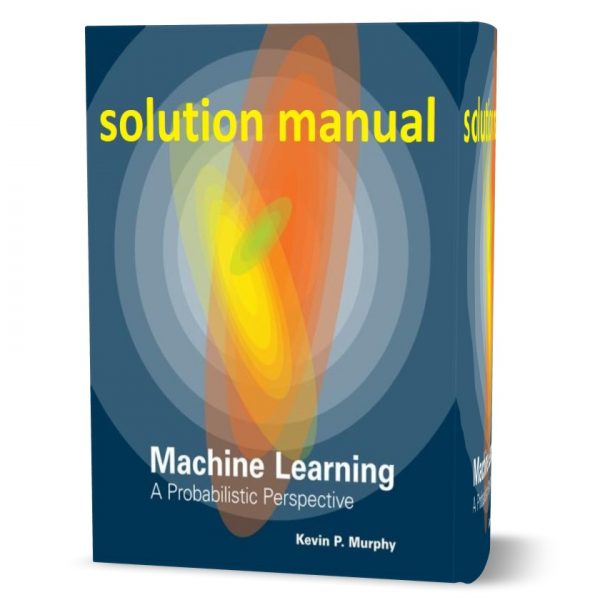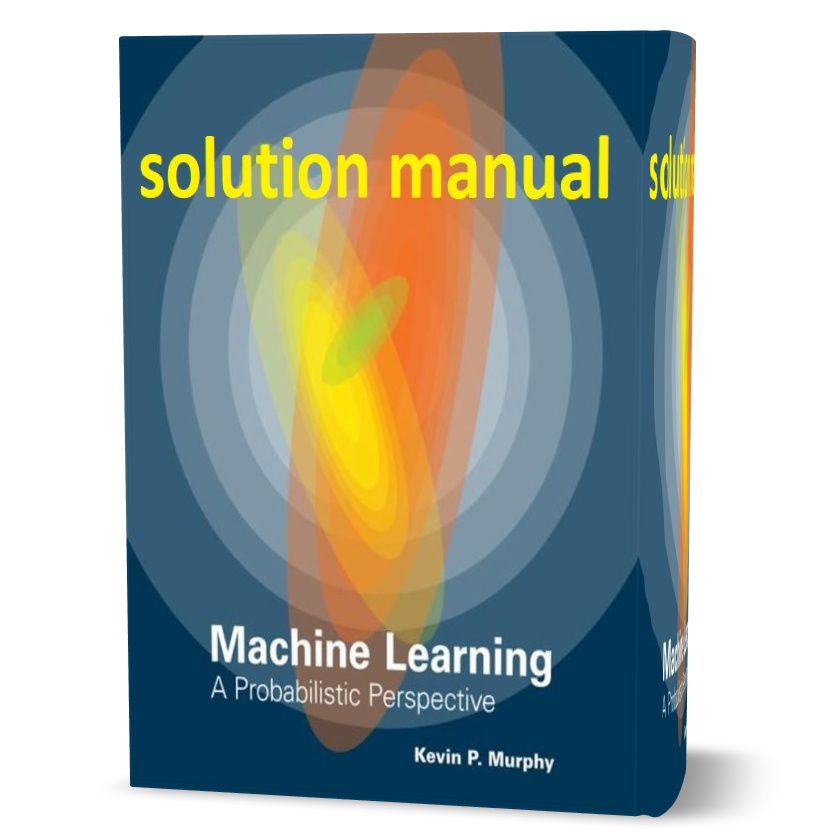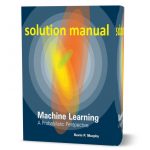Machine learning a probabilistic perspective 1st edition murphy solution manual pdf
Original price was: $25.00.$9.00Current price is: $9.00.
Published: The MIT Press 2012
Edition: 1st
Pages: 127
Type: pdf
Size: 2 MB
Content: This solution manual is provided officially and includes all chapters of the textbook (chapters 1 to 28).
Sample: Solution sample file
Instantly Download After Payment
- Description
- Reviews (0)
Description
Description
Introduction Download free Machine learning a probabilistic perspective 1st edition kevin p. murphy solution manual pdf | ebook solutions With the ever increasing amounts of data in electronic form, the need for automated methods for data analysis continues to grow. The goal of machine learning is to develop methods that can automatically detect patterns in data, and then to use the uncovered patterns to predict future data or other outcomes of interest. Machine learning is thus closely related to the fields of statistics and data mining, but difers slightly in terms of its emphasis and terminology. for more solutions manual click here.
Machine learning a probabilistic perspective 1st edition murphy solution manual pdf
This book Download free Machine learning a probabilistic perspective 1st edition kevin p. murphy solution manual pdf | ebook solutions provides a detailed introduction to the field, and includes worked examples drawn from application domains such as biology, text processing, computer vision, and robotics.
Target audience This book is suitable for upper-level undergraduate students and beginning graduate students in computer science, statistics, electrical engineering, econometrics, or any one else who has the appropriate mathematical background. Specifically, the reader is assumed to already be familiar with basic multivariate calculus, probability, linear algebra, and computer programming. Prior exposure to statistics is helpful but not necessary.
A probabilistic approach
This books adopts the view that the best way to make machines that can learn from data is to use the tools of probability theory, which has been the mainstay of statistics and engineering for centuries. Probability theory can be applied to any problem involving uncertainty. In machine learning, uncertainty comes in many forms: what is the best prediction (or decision) given some data? what is the best model given some data? what measurement should I perform next? etc.
The systematic application of probabilistic
reasoning Download free Machine learning a probabilistic perspective 1st edition kevin p. murphy solution manual pdf | ebook solutions to all inferential problems, including inferring parameters of statistical models, is sometimes called a Bayesian approach. However, this term tends to elicit very strong reactions (either positive or negative, depending on who you ask), so we prefer the more neutral term “probabilistic approach”. Besides, we will often use techniques such as maximum likelihood estimation, which are not Bayesian methods, but certainly fall within the probabilistic paradigm. Rather than describing a cookbook of different heuristic methods, this book stresses a principled model-based approach to machine learning.
For any given model, a variety of algorithms can often be applied. Conversely, any given algorithm can often be applied to a variety of models. This kind of modularity, where we distinguish model from algorithm, is good pedagogy and good engineering. We will often use the language of graphical models to specify our models in a concise and intuitive way. In addition to aiding comprehension, the graph structure aids in developing e”cient algorithms, as we will see. However, this book is not primarily about graphical models; it is about probabilistic modeling in general.
A practical approach
Nearly all of the methods described in this book have been implemented in a MATLAB software package called PMTK, which stands for probabilistic modeling toolkit. This is freely available from pmtk3.googlecode.com (the digit 3 refers to the third edition of the toolkit, which is the one used in this version of the book).




Reviews
There are no reviews yet.